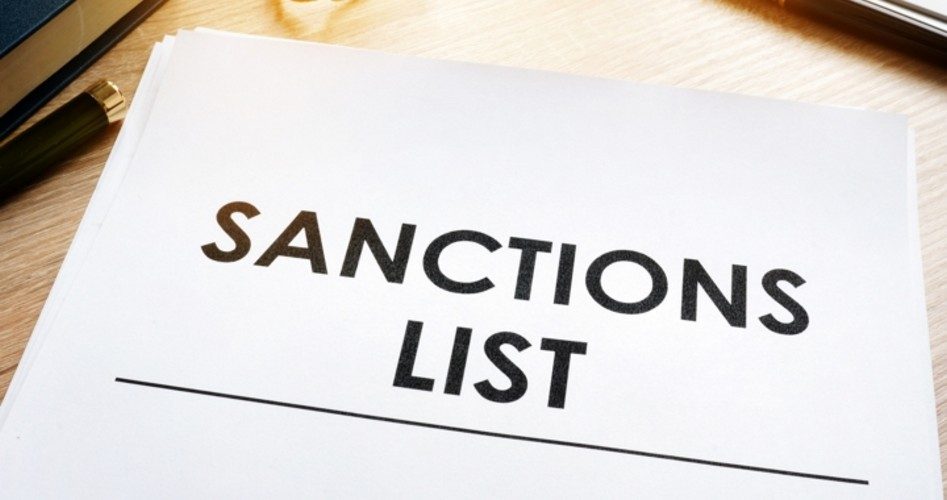
During his speech to Rice University’s Baker Institute for Public Policy in Houston on Friday, Vice President Mike Pence announced additional sanctions against the rogue Maduro regime running Venezuela: “The United States will continue to exert all diplomatic and economic pressure to bring about a peaceful transition to democracy…. The time has come to liberate Venezuela from Cuba.”
Immediately following his speech, the U.S. Treasury Department levied sanctions on 34 oil tankers owned or operated by PdVSA, Venezuela’s state-owned oil company, along with sanctions on two international shipping companies involved in shipping oil from Venezuela to Cuba. Said Treasury Secretary Steve Mnuchin: “Treasury is taking action against vessels and entities transporting oil … providing a lifeline to keep the illegitimate Maduro regime afloat. Cuba continues to profit from, and prop up, the illegitimate Maduro regime through oil-for-repression schemes as they attempt to keep Maduro in power.… Cuba has been an underlying force fueling Venezuela’s descent into crisis.”
Up until Friday, U.S. sanctions on Maduro and members of his Marxist regime have had little impact. Despite international pressure from more than 50 countries supporting Maduro’s opponent, interim president Juan Guaidó, Maduro has seen precious little loss of favor among his top military officials. With the the Maduro regime providing Cuba with between 20,000 and 50,000 barrels per day of Venezuelan heavy crude oil, Cuba has in turn been able to keep Maduro afloat with revenues (along with “advisory” services) of between $1 million and $2.5 million every day. If that pipeline is severed, it is hoped, according to an unnamed Treasury Department official, then Cuba and Russia will be forced to “recalibrate” their relationship with Maduro. “[The new sanctions] make [doing business with Cuba and Venezuela] even more radioactive,” the official said.
In simple terms, the increased sanctions are supposed to raise the cost to Cuba of sustaining Maduro — and the cost to Russia of sustaining Cuba — to the point where they both decide to cut their losses and cut Maduro loose. If they don’t, said the official, there would be additional sanctions coming from the United States in coming weeks, adding ominously that a military effort to remove the dictator continues to be “a very serious option.”
The unholy alliance between Russia and Cuba date back to the days of the Soviet Union. Russia presently has an embassy in Havana and a consulate-general in Santiago de Cuba. In turn, Cuba has an embassy in Moscow and a consulate in St. Petersburg.
When Putin ascended to power in Russia, he travelled to Cuba to meet with and cement his relationship with Cuban dictator Fidel Castro. In 2008, Russian President Dmitry Medvedev visited Cuba to ink a deal that allowed Russian oil companies to drill for oil off the island’s coast and Russian mining companies to mine nickel deposits on Cuban land. In July 2014, Putin visited Cuba, and then announced his decision to erase 90 percent of the island’s $35 billion debt to Moscow in exchange for permission to expand offshore drilling for oil by Russian companies.
Today there are an estimated 15,000 Cuban military, intelligence, and surveillance officials in Venezuela who are involved in training the colectivos — armed motorcycle gangs — tasked with quashing any latent resistance to the Maduro regime in the lower-class barrios through terrorism, torture, and the “disappearing” of members of that resistance.
Will the new sanctions succeed in raising the cost of sustaining Maduro by both Russia and Cuba to the point where they give it up and work instead to come to terms with Maduro’s replacement, Juan Guaidó? Or will they harden further Maduro’s intransigence and Cuba’s and Russia’s determination to keep him power?
It’s a dangerous game, and the Trump administration has just raised the stakes.
Image: designer491 via iStock / Getty Images Plus
An Ivy League graduate and former investment advisor, Bob is a regular contributor to The New American primarily on economics and politics. He can be reached at [email protected].
Related article:
Venezuela’s Marxist Leader Raises the Stakes in Bid to Retain Control



